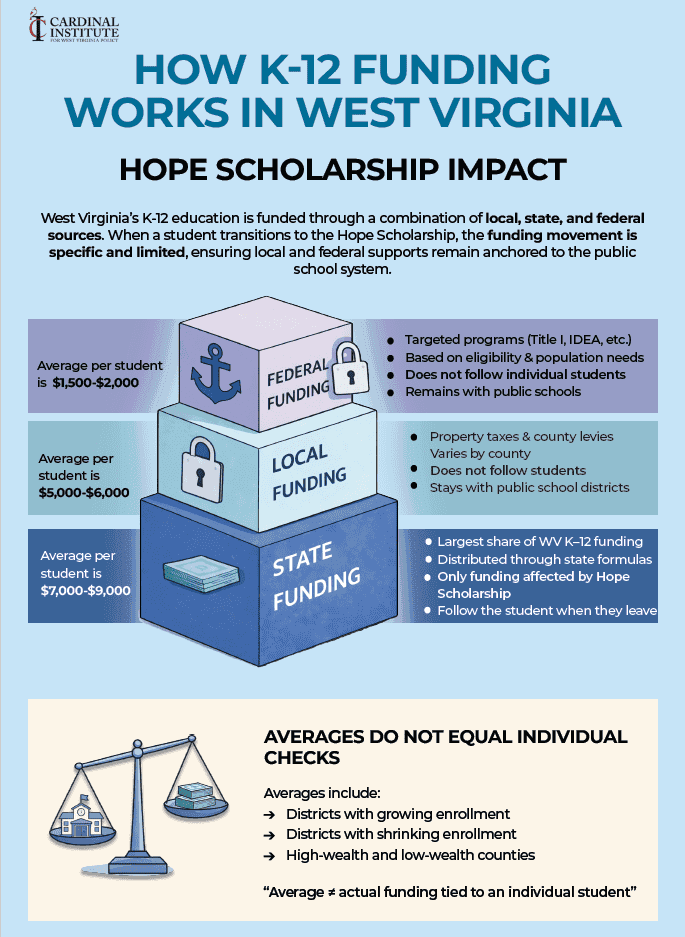
Colleges Must Educate for Freedom
Colleges Must Educate for Freedom
A great American college or university will prepare students for self-governance as both a wise human being and a prudent, productive citizen. Rightly understood, the liberal arts are the intellectual potentials shared by the leaders of a free people. That is, education policy should consider, first of all, how to produce people who do not simply reproduce the values of their society, good as those values may be, but who consider those values carefully, decide whether to make them their own, and make further choices in line with a deeper understanding and appreciation of their own values.
Good “high” schools can achieve much of this goal, but even “higher” education can and should broaden and deepen the formation of young adults for life in a free society. For one thing, new life experiences once a person is responsible for funding his own rent and food produce a new appreciation for tradeoffs of time, money, and effort. For another, getting involved in the community life of someplace new, like a residential college, introduces new problems and opportunities that should prompt young people to reevaluate how people should live and get along.
This means that education for freedom requires careful thought about what a well-educated American should know and be able to do, beyond specializing for a profession.
Teaching for Freedom: Western Civ, American Civ
Considering the extremely large amount of subsidy that federal and state governments give to colleges and their students, the public has a substantial financial interest in the quality of education. Likewise vital is the public’s interest in producing new generations of citizens who will build on the best of the West.
This means that the faculty (or if they fail, higher levels of authority, including legislatures) should do the hard work of designing a “liberal education” curriculum that offers students the ideas and texts that will develop their appreciation for liberty and the legitimate powers and limits of government.
Such a curriculum should never be a mere “distribution requirement”—some history to learn how to think like a historian, some short stories to learn how to think like a humanities professor—but a well-organized, cohesive whole that presents the “Great Conversation” of the Western tradition. That is, a college-level education should engage the really hard questions about self and society, the physical world and the divine, that are never fully and definitively answered.
I am confident that such a curriculum, well-taught, ultimately will inspire students to love what is best about America and the West. No push is needed to appreciate that we no longer fight our battles with violence but, instead, peacefully under a rule of law. More or less, we respect one another’s property and punish fraud. We divide government and honor fundamental rights so that even majorities cannot easily oppress minorities.
Students will also see, through history and related courses, how our system of a market economy within a democratic republic—featuring limited government, self-government, and the power of entrepreneurialism, innovation, and competition—has indisputably produced the most thriving civilization the world has ever seen. Despite past and present imperfections and healthy debates about which criteria would determine American greatness, students will understand, as Adam Smith put it, the nature and causes of the wealth of a nation.
On the individual level, the study of virtue and moral philosophy will give students concepts that they can discuss, analyze, make their own, and apply throughout their lives. Besides, ethical excellence in the population also makes a free society easier to sustain.
Such a curriculum will also develop appreciation for the best artistic achievements of both the West and non-Western civilizations, but primarily the West’s, transmitting our cultural inheritance to the next generation. This includes understanding the religious traditions responsible for so much of Western history, literature, architecture, and culture from the ancient Greeks to the present.
This approach means presenting the best arguments and best books that the faculty can muster in a spirit of intellectual humility—a search for truth more than any activism or indoctrination. It may seem counterintuitive that an education for freedom includes prescribed curricula. The Great Conversation, however, involves questions with no one right answer, and the “Great Books” are the kinds of books that make a person think deeply and develop intellectual skills while sharing what the author believes he knows.
After all, our federal and state governments have their imperfections. A spirit of humility that reinforces our common “civic religion” through repetition, broadening of experience, and deepening of understanding does not mean reproducing blind faith the nation or its leaders. It means developing citizens who know where we are as a people and who have the abilities to make our political union “more perfect.”
Finally, the faculty and administration ought to be able to articulate why their curriculum includes what it does—what makes the chosen ideas and texts so valuable to the student. An inspiring explanation of the curriculum helps with admissions, keeps the faculty centered, and helps keep irrelevant, narrow, or self-indulgent courses from entering the core curriculum.
In short, all of this is a college-level version of a “classical school” curriculum. As more students graduate from classical high schools, the market for a classical college education will increase.
Unfortunately, most colleges take the easy way out and create distribution requirements with dozens or hundreds of options in each subject area. (My recent book Slacking with coauthors shows how most Ivy League faculty have slacked in this duty.) Even worse, colleges create “multiculturalism” requirements that encourage citizens to see themselves primarily as representatives of identity-group factions. Legislatures sometimes have had to step in to require a college education for freedom.
Co-Curriculum for Freedom: Campus Culture
Outside the curriculum, policy makers have a wider range of options to improve campus culture for a free society. The key difference between high school and college is that most students are now adults who ought to experience the full set of rights, privileges, and responsibilities that go with American adulthood. A campus culture that actively encourages and models free speech, civil discourse, and vigorous but respectful debate will go a long way toward producing responsible self-governing citizens.
College students today are afraid to say what they think. It’s not just a lack of confidence or ability to seem smart enough—it’s often a fear of social and even disciplinary repercussions for expressing a view outside the campus mainstream. At a minimum, policy makers should ensure that public colleges are complying with the First Amendment and the state constitution’s guarantees, and private universities should be held to their free-speech promises through legislation and policy to interpret them (especially when found in the student handbook) as contractual and enforceable.
But there’s much more. Campus programs and events should model good behavior among faculty members who express different views of challenging questions and issues. Student clubs should be encouraged to sponsor debates.
Policy makers and lawmakers can require public institutions to adopt and promulgate the “Chicago Principles” of free speech and the Kalven Report principles of institutional neutrality. These principles, all from the University of Chicago, require the campus administration not to push a “company line” on any topic that’s outside the core mission and operations of running a college. As the Kalven Report notes, the students and faculty are to be the critics, while the college is merely the home and incubator of critics.
Student orientation, which is generally obligatory for new students, should enculturate them to campus values of free inquiry and academic discourse—how to address “offensive” or “wrong” ideas with “better” (better warranted, better articulated) ones. Today, student orientations and “freshman week” events too often teach students to call up a “bias incident response team” instead. Policy makers who want to limit campus DEI (“diversity, equity, and inclusion”) should consider mandating what must be and what must not be in the student orientation at a public university.
Colleges also should undergo a civil rights audit to fully comply with the anti-discrimination requirements clarified in the Supreme Court’s decisions in the Students for Fair Admissions cases. That’s not only because equality under the law is morally right and legally required, but also because it teaches students to live under a free and equal regime.
The new Washington Center at West Virginia University, created by the state legislature, has a special opportunity to lead many such initiatives and operate under principles of freedom, as do the other new centers and schools nationwide that are designed to teach civic education and leadership. A university doesn’t need such a center to do so, but dedicated funding and a state mandate surely help.
With such programs and cultural norms in place, a real test will be when a particularly controversial person or event comes to campus. Will protesters seek to shut down the speech (activities that policy makers should ban if colleges won’t act) or use their skills to address the speech with “better” speech of their own? Will the administration step in to oppress one side or the other (which policy makers should ban if colleges can’t get it right), or will it celebrate intellectual diversity?
Policy makers also can push institutions to ensure that relevant campus staff receive the training necessary to preserve, model, and advance a culture of freedom on campus. After all, it’s far better for an institution to handle a crisis correctly the first time and show students and stakeholders what the institution is all about.
Generational Impact
If lawmakers, policy makers, trustees, and other campus leaders produce a great curriculum and co-curriculum for freedom, thousands of students per year will be equipped to study and learn self-governance. As Ronald Reagan put it (in somewhat different language in different speeches):
Freedom is never more than one generation away from extinction. … It must be fought for, protected, and handed on for them to do the same, or one day we will spend our sunset years telling our children and our children’s children what it was once like in the United States where men were free.
Those lines were already so long ago that his generation’s grandchildren are now getting old. We too must appreciate and pass along our inheritance and deposit of freedom, with interest, to our own posterity.
Written by: Adam Kissel, Senior Fellow at the Cardinal Institute for West Virginia Policy







